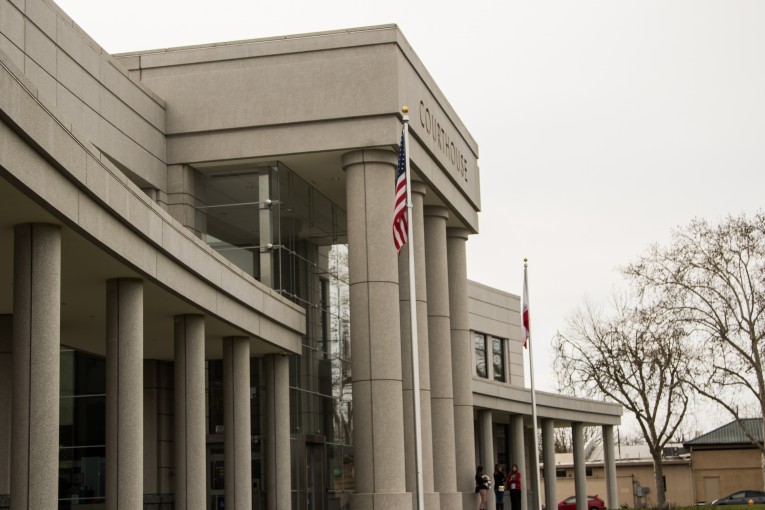
 By Setarah Jahid
By Setarah Jahid
On February 23, 2017, the preliminary hearing for Raymond Yabes, Jr., began. Deputy Public Defender Richard Van Zandt had filed a motion to suppress due to an alleged Miranda rights issue. Deputy District Attorney Rachel Resneck represented the People.
The main and sole witness called by Ms. Resneck was Officer Cody Coulter, who has worked with the West Sacramento Police Department for three years. Officer Coulter was on duty on August 31, 2016, at 11:50 p.m. He had received a call that there was a burglary of a shed in progress on B Street. He was given the description of two Hispanic adult males. He responded to the scene, and eventually had four other officers join him.
At the scene, officer Coulter located a nunchaku weapon (a Japanese martial arts weapon consisting of two sticks connected at one end by a short chain or rope) on the grass, and asked Mr. Yabes who the weapon belonged to. Yabes responded that it belonged to him. Coulter then pulled out a card and read Mr. Yabes his Miranda rights. After hearing his rights, Mr. Yabes gave an even longer statement. Ms. Resneck played the audio recording from that night – Mr. Yabes’s first statement to the officer was less than thirty seconds long, whereas his second statement was almost two minutes long.
Ms. Resneck asked Coulter, “Why did you ask whose nunchuks are these?” Coulter responded that it was only an investigative question, and not intended to circumvent Miranda rights.
During cross-examination, Mr. Van Zandt argued that the issue comes down to whether Officer Coulter’s actions were deliberate, and whether or not there was a “curative process” for Miranda deficiencies. He also argued that the objective factors worked in Yabes’s favor.
Resneck rebutted with case law that showed curative measures are only needed if the action was deliberate, and according to her, it definitely was not deliberate.
Judge Maguire ruled that he did find the question “Who’s nunchuks are these?” to be interrogative. However, he also believed that Mr. Yabes’s first statement was voluntary. To him, it seems that the events unfolded quickly, and officer Coulter simply got ahead of himself, but not with the intention to circumvent Miranda. Thus, his final ruling was that the post-Miranda statement may be used, but not the first statement. He granted the motion to suppress in part.
The trial is set for next Monday.